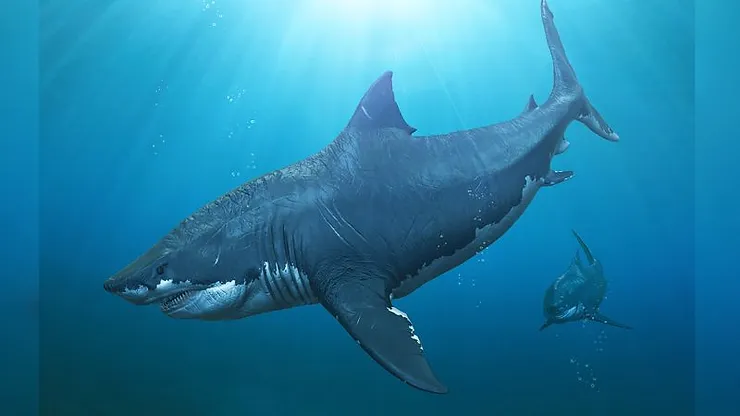By: Emma Ke
Megalodons, the largest sharks recorded in history and the creature that was once at the top of the ocean’s food chain for millions of years, met their end for an unknown reason. Now, after a new study on shark teeth, scientists believe that great white sharks, a significantly smaller and weaker species of shark, helped push this massive beast toward extinction.
The Otodus megalodon is suspected to have died out around 2.6-3 million years ago. It had jaws that could swallow two human adults standing side by side and lived for almost 13 million years. The cause of their extinction was shrouded in mystery until recently, when researchers found shocking evidence for a theory about how the megalodon was pushed toward its end.
This theory about how great white sharks led megalodons to extinction revolves around their diet. To find the diet of both sharks, scientists had to look at the type of zinc contained in their teeth. After examination of the teeth, researchers found that the zinc in their teeth was quite similar.
After gaining the new information, it was proposed that the two sharks may have fought over food, which led or helped lead to the extinction of the megalodon. The theory is now published in the journal Nature Communications, though it cannot be proven true because scientists have no proof that the two sharks actually fought over food. There are other plausible theories, including that of a food chain problem. This problem occurs when the diminishing number of organisms at the bottom of the food chain causes a ripple effect and reduces predators’ numbers. Another theory proposes that megalodons died because of cooling temperatures and drying oceans around the world.
All these theories are plausible, but we still don’t have any proof that any of them actually happened. So, until we do, the megalodon’s death will still be an unanswered question.











